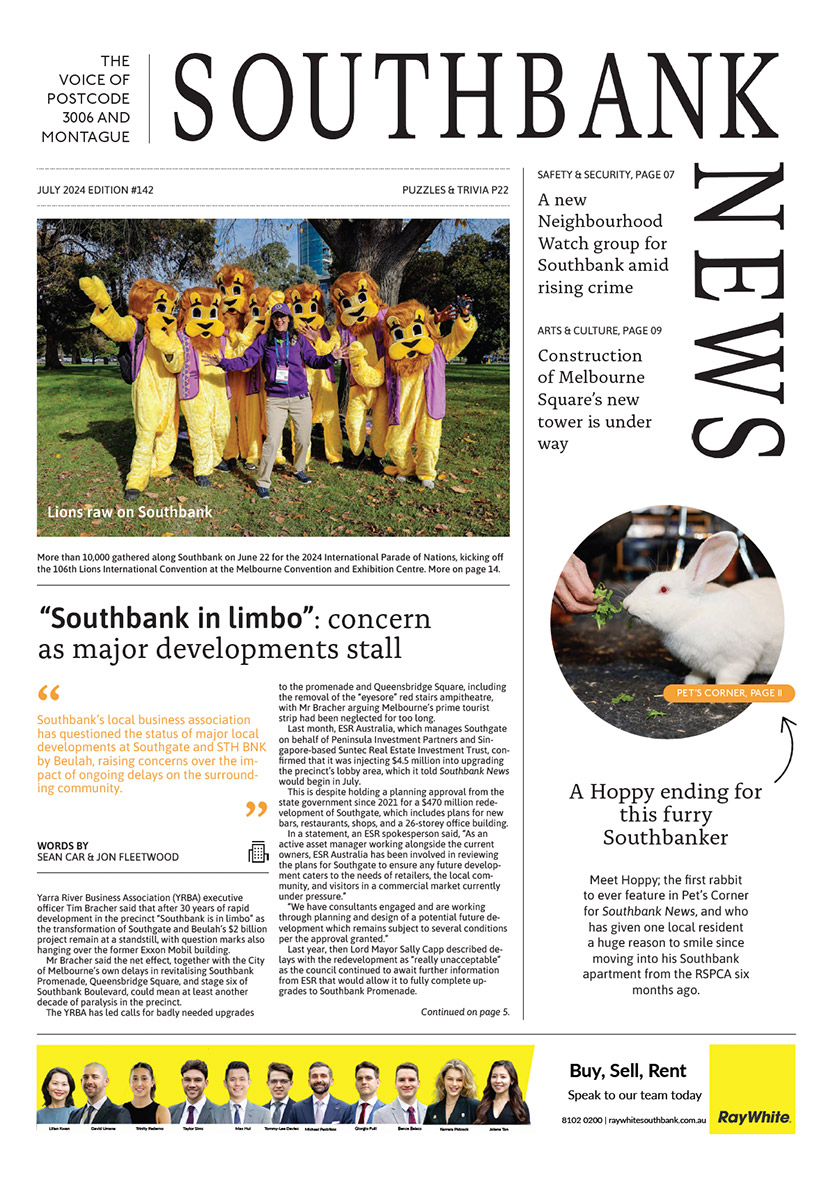E-scooters to drop in city
By David Schout
Melburnians could soon be whizzing around town in electric scooters after the City of Melbourne put its hand up to be part of a state government-led trial.
After a series of mostly unsuccessful bike-share schemes, the council hoped the latest “micro-mobility” option would prove successful.
However, one councillor admitted to being “very nervous” about the trial after varied levels of e-scooter success around the world.
The Victorian government has asked for expressions of interest from two metropolitan councils to be part of the one-year trial, which would allow scooters to travel up to 20kmh — up from the current limit of 10kmh which was considered unworkable.
The new state rules dictate that e-scooters can be ridden on bike lanes and roads with speed limits up to 50kmh, however would be banned on footpaths.
The City of Melbourne has now submitted an expression of interest to be part of the trial, and while successful councils had yet to be announced at time of publishing, it was widely expected to be selected given its centrality and overall suitability.
Most e-scooters currently seen on the city’s streets are illegal, as they are both too powerful (greater than 200 watts) and travel faster than 10 kmh (current state laws).
Lord Mayor Sally Capp said they were “a largely unregulated transport option”, and welcomed the trial.
“Every time I see somebody on a scooter I think ‘oops I think they might be breaking the law’. I think sooner we get this sorted the better,” she said at a June 1 Future Melbourne Committee meeting.
While the Victorian government has set the new rules for electric scooters, the trial will only legalise shared fleets managed by companies that have agreements with the two selected councils.
Cr Capp said working collaboratively with these companies would provide a “valuable opportunity to help shape the future of e-scooters on our streets”.
Safety concerns, however — both to pedestrians and riders themselves — continue to dog the relatively new transport option around the world.
Cr Rohan Leppert said these concerns would remain until proven otherwise.
“I won’t be shy about the fact that I’m very nervous about a scooter trial in the centre of Melbourne, and I’m glad that we’re not going first,” he said.
“If you look at some of the experiences in cities like Auckland and Brisbane and plenty of cities overseas, we’ve seen what happened — a bit like what happened here with oBikes — if you don’t have enough of the base level of regulations to understand how government might support and guide an operator through being a good citizen, then you’re not going to end up with a scooter system that’s publicly safe, and you’re not going to end up with a system that’s embraced with a high reputation.”
Cr Leppert said restricting riders to certain streets and preventing scooter use on footpaths was crucial.
“I think that’s absolutely vital, because we don’t want to be facilitating a highly dangerous mix of different transport modes in the wrong place … done well, this has the capacity to do fantastic things for our city. But we really have to make sure the regulations are right.”
The council has suggested the government extend the trial to three local government areas rather than two, to ensure a greater dataset to analyse at the trial’s end •

A new Neighbourhood Watch group for Southbank







 Download the Latest Edition
Download the Latest Edition